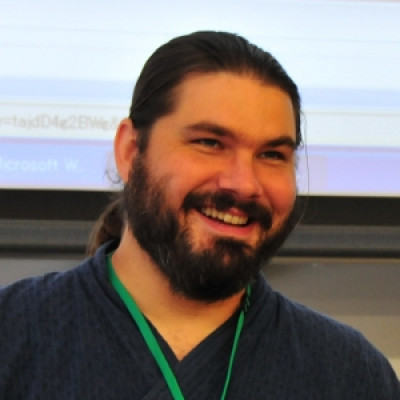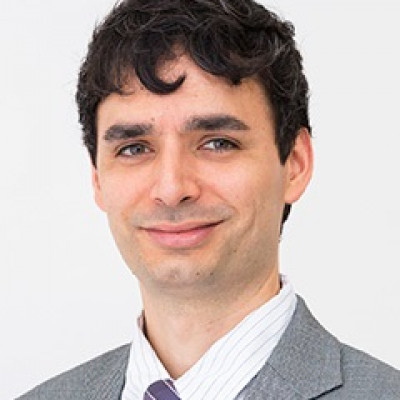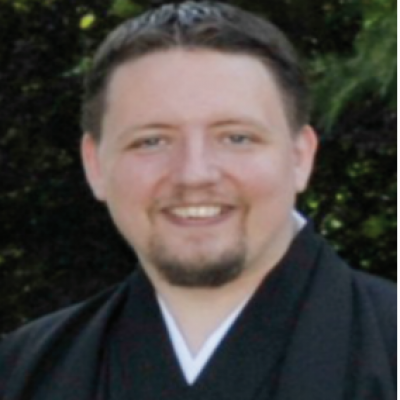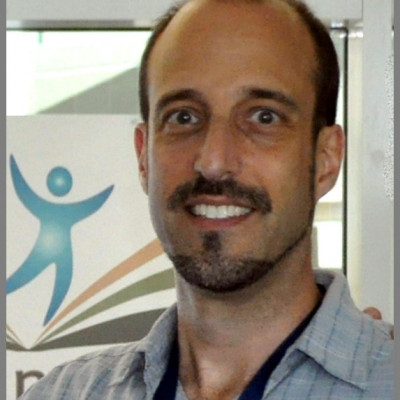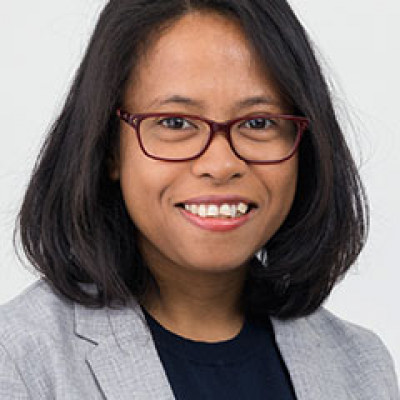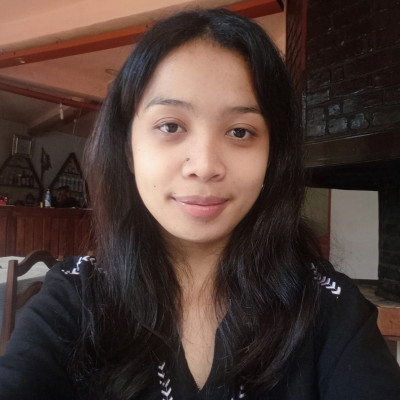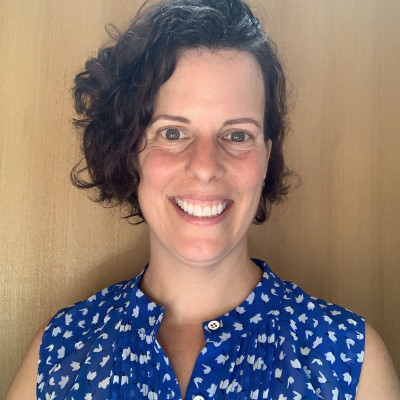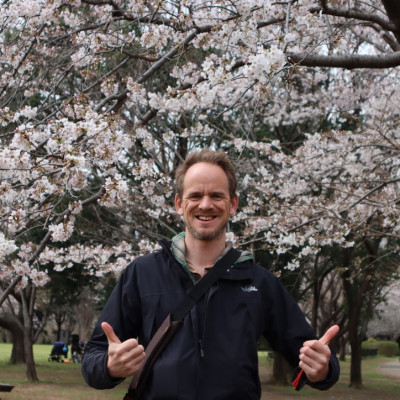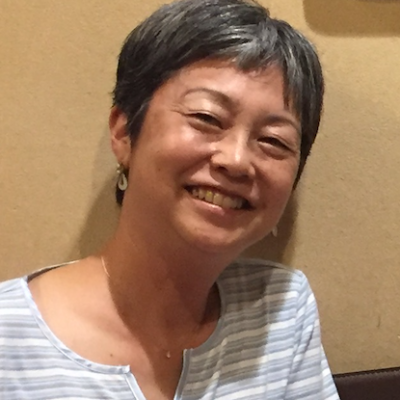Sessions / Location Name: G21
Physical Location
Location: G21
Building: Miwa Campus Building < The University of Nagano
Developing a system for student self-evaluation in speaking classes #2717
A common classroom challenge is evaluating student oral production, particularly in classrooms where students speak in small groups as limitations of teacher and classroom lesson time make providing individualized feedback impractical. In this practically-oriented presentation, the presenters introduce a system developed to make lessons more student-centered, promote learner autonomy, and facilitate student reflection. The system enables students to self-evaluate their speaking through recording and transcribing their oral production using freely available online tools. The presenters describe the development process for the self-evaluation rubric. The rubric went through multiple iterations from one originally intended for teachers, which was unwieldy for students to use, to a simpler, more focused student-friendly rubric. As a result of this change to the class system, students could self-evaluate their production and solicit individualized feedback from instructors concerning self-selected topics of interest. The presenters also share student reflections and feedback. Specifically, students observed that focused self-assessment helped them better understand and implement the conversation strategies featured in the class textbook. As these techniques are compatible with online and face-to-face instruction, attendees will gain an understanding of how to implement similar strategies in their teaching without relying on the online technologies used.
Contextualizing Genre through Exploratory Practice #2720
In a time of uncertainty caused by the global pandemic, more than ever, many students are questioning their present education and its relevance to their current needs and future goals. It is an opportune time to invite critical inquiry in the classroom and work together as teacher and students to understand the contemporary language classroom experience. In one such class, a university freshman English Genre reading and writing class, the teacher and students piloted a style of classroom practitioner research called Exploratory Practice (EP) in order to better understand the current learning experiences of Japanese English learners. The hope was to contextualize the course’s Genre approach in order to maintain cultural and social relevance to the acts of language learning and teaching. EP is practitioner research that invites all classroom participants to explore their language learning experiences via “existing classroom practices” (Allright, 2003). The presenters will report on what context EP provided to the Genre reading and writing processes as well as whether this pilot fulfilled course objectives. Analysis of student projects reveals that students personalized their research projects and demonstrated successful use of genre conventions.
Student-designed and student-led online activities for English practice #2888
While there are many ways to reimagine language education, one way in which the presenter has attempted to do this is through Project-Based Learning (PBL) as this form of student-centered collaborative learning encourages active involvement in the learning process (Cocco, 2006 as cited in Kokotsaki, Menzies & Wiggins, 2016). This presentation will therefore describe a university course in which students engage in PBL through organizing their own online activities for English practice. While the presenter provides support when necessary, students are given complete control and are expected to take full responsibility as they work together to plan, prepare, and hold their English activities about three times a semester. Based on participant feedback about earlier activities, as well as the student organizers’ own reflections on their experiences, students in the course are encouraged to consider how to improve future activities. This presentation will first look at what is involved in offering such a PBL-oriented course, including the usual steps taken for organizing an activity. Next, examples of some of the activities held will be shown. Finally, based on students’ reflections and feedback, as well as the presenter’s own observations and reflections, potential challenges and benefits of such PBL will be discussed.
Learners’ views of self-regulated EFL learning: An interview-based study #2892
Technological innovations and the emergency remote teaching during the COVID-19 pandemic have generated adjustments in classroom practices as well as a growing focus on outside-class autonomous and self-regulated learning (SRL), commonly determined by learners’ agency that requires capacity and will (Oxford, 2017). To gain insights into the learners’ perspectives, experiences and approaches regarding their SRL, semi-structured interviews were conducted among 17 relatively proficient Japanese university students. The vast amount of data collected and analyzed through thematic content analysis reveals the learners’ (1) views on Japanese EFL education and the importance of SRL, (2) perceived difficulties in EFL learning, (3) use of digital learning tools, (4) several workable SRL approaches and (5) abilities to control their commitment, satiation, emotion and environment in their outside-class SRL (Tseng et al., 2006). This study inquired among a limited sample of high achievers; however, it uncovers – for instance – Japanese EFL learners’ desires for contextual and communicative approaches as opposed to the generally experienced grammar-translation method, learners’ outside-class initiations in organizing learning groups, or their limited use of digital means. Furthermore, it may serve as a base for teacher development and further research including more variability in learners’ levels of education, EFL proficiency or SRL competence.
Addressing basic psychological needs through a teletandem language exchange #2718
Even before the Covid-19 pandemic, educators have been using telecommunication tools to facilitate collaboration between students in different locations. This telecollaboration can be particularly productive for language learning, as learners of two different languages can be paired for a supportive language exchange project, which provides opportunities for authentic language communication which may be otherwise hard to find. This kind of virtual language exchange is called teletandem.
In this presentation, research findings will be shared from a longitudinal extracurricular teletandem project between students at a university in Japan who are learning English, and those studying Japanese at partner institutions. Several students were interviewed 6 months after taking part in the teletandem exchange, to investigate 1) how they conducted the exchange and negotiated language use with their partner, and 2) how the experience of joining the exchange has influenced their experience of learning their target language. By applying concepts from self-determination theory (Deci & Ryan, 1985) to the interview data, the project investigates to what extent a teletandem exchange may enhance intrinsic motivation to learn a language by supporting learners’ basic psychological needs.
Teacher reflections on a student-led group seminar project #2847
Project-based learning (PBL) is a progressing development in education that suggests tremendous benefits for learners, such as mastering 21st-century academic skills, developing learner autonomy, increasing motivation, and building group dynamics through collaborative work. In this presentation, the authors will attempt to demonstrate the accuracy of the above statement by reflecting on the effectiveness of the PBL approach which they implemented in a student-led group seminar project for an advanced English course at a private university in Tokyo. After providing a brief overview of the PBL approach and a complete description of how each stage of the student-led group seminar project relates to this approach, each instructor will report their unique observations of the project flow in their classes together with observations regarding whether the educational benefits of PBL were achieved. In addition, ways in which the project could be further improved to better facilitate learning outcomes of the PBL approach will also be discussed.
Xreading: What’s New and What’s Next #3253
Xreading is an online library that gives students access to thousands of graded readers and allows instructors to track their students’ reading progress. Since its launch in 2014, the system is being continuously being updated and improved with new features and more books. In this presentation, the founder of Xreading will explain the new features and improvements, and review what is planned for the future. Current users of the system are encouraged to provide feedback and suggestions based on their experience.
生徒のエンゲージメントと学習到達度・教師の指導には関係性があるか? #2716
言語学習エンゲージメントに関する研究が近年急増し(Hiver, Al-Hoorie, Vitta, & Wu, 2021) 、学習到達度との関係性(Fredricks, Blumenfeld, & Paris, 2004)に注目が集まる中で、国内の中学生を対象とした研究はまだわずかである。本研究では生徒のエンゲージメントと到達度に加えて、生徒のエンゲージメントと教師の指導についての関係性を量的に調査した。公立中学校2校の全校生徒と英語教科の教員を対象に、2021年12月に質問紙調査を実施した。分析ではエンゲージメントの尺度を開発したのち、生徒のエンゲージメントと到達度、および生徒のエンゲージメントと教師の指導の関係性を確認する。予測される結果として、生徒のエンゲージメントの高さは英語学習の到達度と関係性があり、教師の指導との間にも関係性があると想定している。発表では分析の結果を踏まえた上で考察を行う。
Word association and the L2 mental lexicon #2966
This presentation documents an attempt to better understand the L2 mental lexicons of a group of English language learners. To explore the relationship between word-association and learners’ lexical development, the researcher employed a psycholinguistic experiment - the word association test, based on Task 123 of McCarthy’s Vocabulary (1990: 152). A simple word association task comprising eight stimulus words was administered. Participants comprised low-level and high-level Japanese English as a Foreign Language (EFL) students and two high-level exchange students from Chile and Finland who were also EFL and English as a Second Language (ESL) learners, respectively. In the study, focus is placed on five types of word relations: contextual structure, (syntagmatic/paradigmatic relations), meaning (sense relations), extra-linguistic (encyclopaedic relations), frequency (collocation), and sound (clang associations). The results of this word association task did not exactly mirror the findings of Aitchison (2003). However, some clear similarities between the two studies were identified. The findings support the claim that the mental lexicon of the L2 learner is highly organized, and that word relations within the L2 lexicon are comprised of primarily semantic or lexical distinctions and not phonological ones.
Challenging Conventions: Opening up New Spaces in Learner Development (FACE TO FACE) #3108
This forum will examine how new learning spaces can help learners grow beyond conventional education environments. Presenters will explore holistic and ecological perspectives on learners’ growth, taking into account multiple aspects of their experiences, their interactions with others, and different affordances in diverse learning environments and spaces. The forum will include both studies that shed new light on the impact of sociocultural and psychological factors on the development of learner autonomy, as well as practice-related accounts that explore learners’ practices in a range of learning spaces outside of conventional classroom settings. In the forum participants will have opportunities in pairs and small groups to discuss and reflect on different non-conventional environments, spaces, and processes that learners can access and/or use. The combination of these theoretical and practice-based perspectives will encourage us to think about learner development from fresh angles, not only under the current and post-pandemic situation, but also beyond, so that we can come away from the forum with fresh ideas for challenging conventions and opening up new spaces in learner development in our own learning, teaching, and research. Round One 11:50 to 12:20 Dominique Vola Ambinintsoa Razafindratsimba, Fanaperana Haingo Rajaonaritiana, Volatiana Olivia Rasoanindrina and Jenny Morgan Round Two 12:20 to 12:50 James Underwood, Gretchen Clark and Greg Rouault
